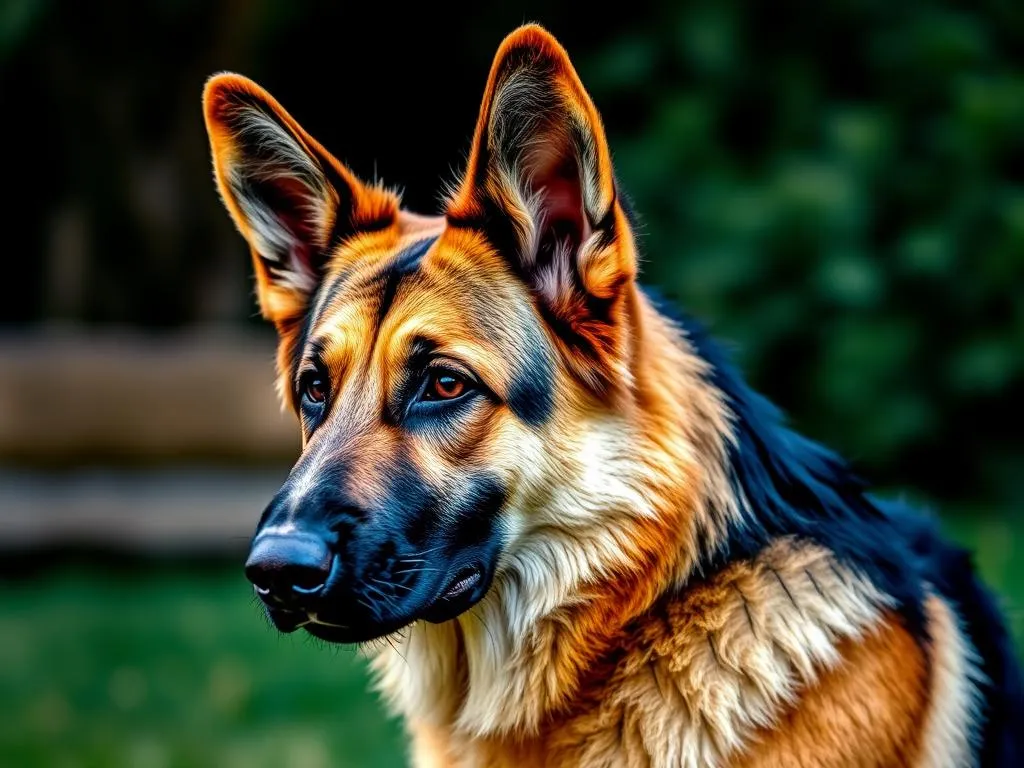
Introduction
When it comes to choosing a dog breed, potential pet owners often look for a combination of temperament, physical characteristics, and care requirements. Among the many breeds available, the Corman Shepherd stands out as a unique and affectionate companion. This hybrid breed, a delightful mix of the Corgi and the German Shepherd, has gained popularity for its charming personality and lovable nature. In this post, we will explore the characteristics, care needs, and overall suitability of the Corman Shepherd as a family pet.
Understanding the Corman Shepherd
Definition and Origin
The Corman Shepherd is a designer dog breed that results from crossing the Welsh Corgi, known for its short legs and playful demeanor, with the German Shepherd, a breed celebrated for its intelligence and loyalty. This combination produces a dog that inherits the best traits from both parent breeds. The history of the Corman Shepherd is relatively recent, emerging as a popular choice among dog lovers looking for a unique companion that combines the playful nature of a Corgi with the steadfastness of a German Shepherd.
Physical Characteristics
Corman Shepherds typically weigh between 25 to 65 pounds, depending on which parent breed they take after more. Their height ranges from 10 to 15 inches at the shoulder. These dogs often boast a double coat, which can be medium to long, and they are available in various colors, including black, tan, sable, and even merle patterns.
One of the distinctive features of the Corman Shepherd is its ears, which might be erect like a German Shepherd’s or floppy like a Corgi’s, creating a unique look. Their tail is often long and bushy, adding to their overall charm.
Temperament and Behavior
The temperament of the Corman Shepherd is often described as friendly, loyal, and intelligent. These dogs tend to be very affectionate with their families, making them excellent companions. They are known to be good with children and can get along well with other pets if socialized properly.
In terms of intelligence, Corman Shepherds are quick learners and respond well to training, which can be both a blessing and a challenge. Their eagerness to please makes them relatively easy to train, but they also possess a stubborn streak inherited from the Corgi side.
Health and Care Requirements
Common Health Issues
Like any breed, the Corman Shepherd can be prone to certain health issues. Common genetic predispositions include hip dysplasia, eye problems, and obesity, particularly if they are not exercised regularly. Regular health screenings and preventive care are essential to ensure a long and healthy life for your Corman Shepherd.
Nutrition and Diet
Feeding your Corman Shepherd a balanced diet is crucial. High-quality dog food formulated for medium-sized breeds is recommended. It’s important to keep an eye on portion control to prevent obesity, which some Corman Shepherds may be prone to due to their Corgi lineage. Always consult with your veterinarian for personalized dietary advice based on your dog’s age, weight, and activity level.
Exercise Needs
Corman Shepherds are active dogs that require regular exercise to keep them healthy and happy. A daily routine of at least 30 to 60 minutes of physical activity is recommended. They enjoy walks, playtime in the yard, and interactive games that challenge their minds. Activities like fetch and agility training can also be great for keeping your Corman Shepherd physically and mentally engaged.
Grooming and Hygiene
The grooming needs of a Corman Shepherd can vary depending on their coat type. Generally, they should be brushed at least once a week to manage shedding and keep their coat healthy. During shedding seasons, more frequent brushing may be necessary. Bathing should be done as needed, but over-bathing can strip the natural oils from their coat. Additionally, dental care is essential, so regular tooth brushing and dental chews are recommended.
Training and Socialization
Basic Training Techniques
Early training is vital for the Corman Shepherd to develop good manners and socialize properly. Positive reinforcement methods work best, as these dogs respond well to praise and treats. Basic commands such as sit, stay, and come should be taught early on, and consistent training sessions can help reinforce these commands.
Socialization Importance
Proper socialization is crucial for a Corman Shepherd. Introducing them to various environments, people, and other animals helps them develop a well-rounded personality. Early socialization can prevent behavioral issues such as fearfulness or aggression later in life. Consider puppy classes or playdates with other dogs to enhance their social skills.
Advanced Training Options
For those interested in advanced training, the Corman Shepherd can excel in various dog sports, including agility, obedience, and even therapy work. Their intelligence and eagerness to work make them suitable candidates for advanced training, allowing them to learn tricks or participate in service dog programs. These activities not only provide mental stimulation but also strengthen the bond between the dog and its owner.
Living with a Corman Shepherd
Ideal Living Conditions
While Corman Shepherds can adapt to various living environments, they thrive best in homes where they can get plenty of exercise. A house with a yard is ideal, but they can also adapt to apartment living as long as they receive regular walks and playtime. It’s essential to provide them with enough space to roam and play.
Compatibility with Families
The Corman Shepherd is particularly well-suited for families, including those with children. Their friendly nature makes them excellent playmates, and their protective instincts can provide an added sense of security. They are adaptable to different lifestyles, whether you are an active family or a more sedentary household.
Cost of Ownership
Owning a Corman Shepherd comes with both initial and ongoing costs. Initial expenses may include adoption fees, vaccinations, and spaying/neutering. Ongoing costs include food, grooming, and veterinary care, which can add up over time. It’s essential to budget for these expenses to ensure you can provide for your furry friend adequately.
Conclusion
The Corman Shepherd is a delightful breed that combines the best attributes of both the Corgi and the German Shepherd. With their friendly temperament, adaptability to family life, and intelligence, they can make an excellent addition to many households. Potential owners should consider their care needs, including exercise, grooming, and training, to ensure a fulfilling life for their Corman Shepherd. As with any breed, researching and understanding their unique traits will help you make an informed decision.
FAQs about Corman Shepherds
What is the average lifespan of a Corman Shepherd?
The average lifespan of a Corman Shepherd is typically between 12 to 15 years, depending on their health and care.
Are Corman Shepherds good for first-time dog owners?
Yes, Corman Shepherds can be suitable for first-time dog owners as long as they are willing to commit to training and socialization.
Do Corman Shepherds have a strong prey drive?
Due to their herding background, Corman Shepherds may have a moderate prey drive. Early socialization and training can help manage this behavior.
How much exercise do Corman Shepherds need?
Corman Shepherds require at least 30 to 60 minutes of exercise daily to keep them healthy and happy.
Are Corman Shepherds good with children?
Yes, Corman Shepherds are typically good with children and can make excellent family pets with proper socialization.









